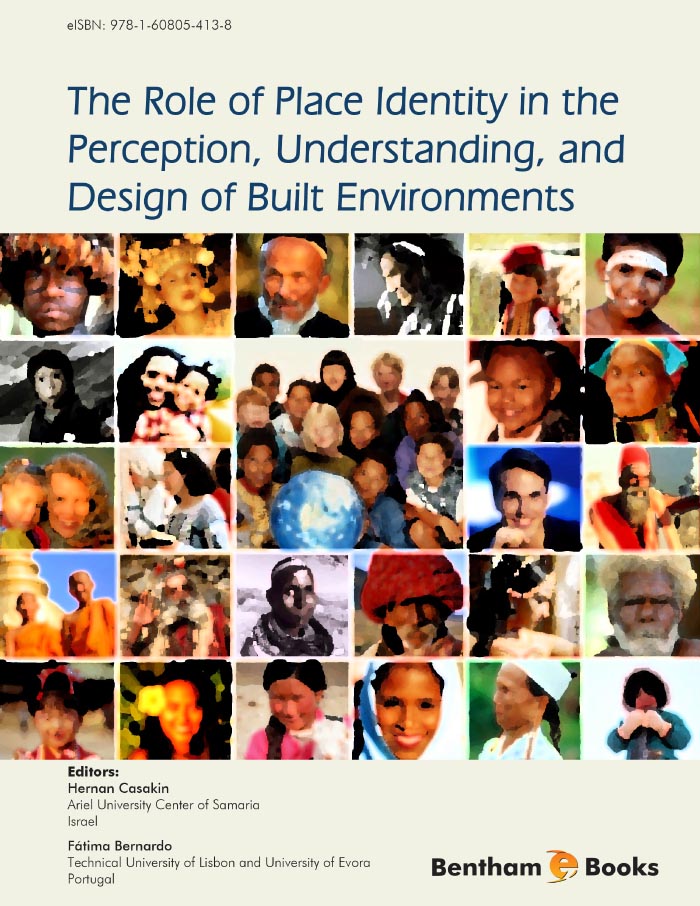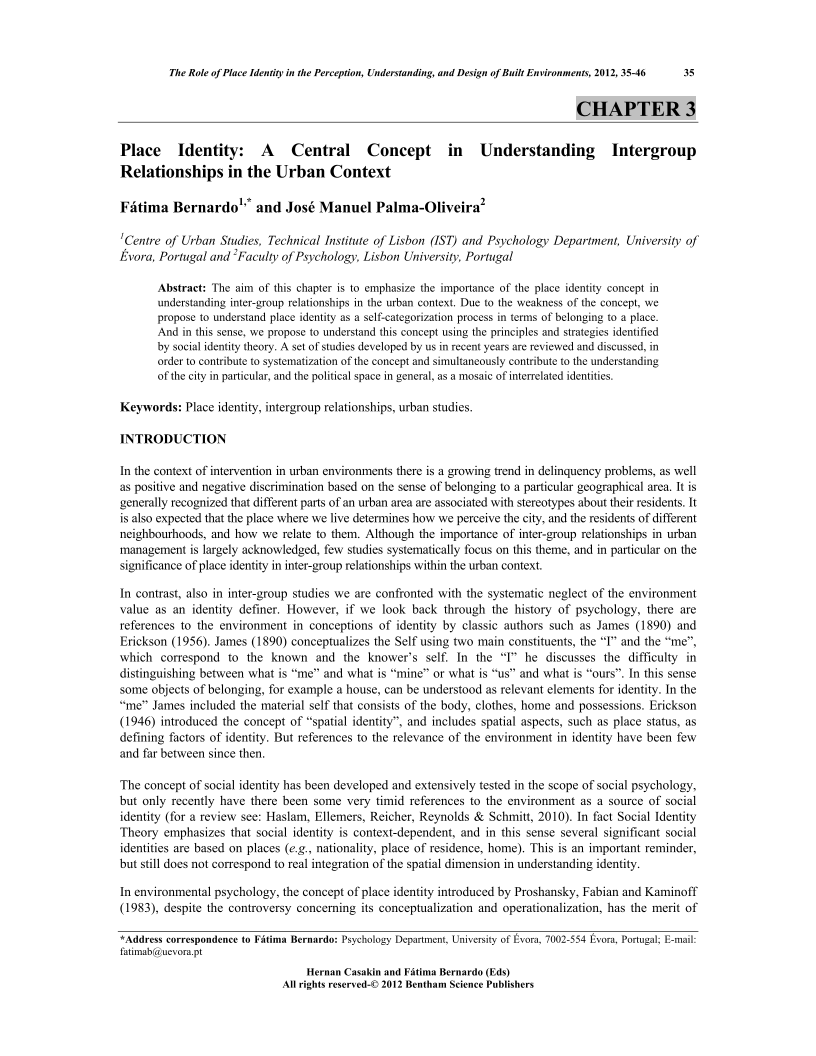Place Identity: A Central Concept in Understanding Intergroup Relationships in the Urban Context

- Authors: Fátima Bernardo1, Jos Manuel Palma Oliveira2
-
View Affiliations Hide Affiliations1 Centre of Urban Studies, Technical Institute of Lisbon (IST) and Psychology Department, University of vora, Portugal 2 Faculty of Psychology, Lisbon University, Portugal
- Source: The Role of Place Identity in the Perception, Understanding, and Design of Built Environments , pp 35-46
- Publication Date: July 2012
- Language: English
Place Identity: A Central Concept in Understanding Intergroup Relationships in the Urban Context, Page 1 of 1
< Previous page | Next page > /docserver/preview/fulltext/9781608054138/chapter-3-1.gif
The aim of this chapter is to emphasize the importance of the place identity concept in understanding inter-group relationships in the urban context. Due to the weakness of the concept, we propose to understand place identity as a self-categorization process in terms of belonging to a place. And in this sense, we propose to understand this concept using the principles and strategies identified by social identity theory. A set of studies developed by us in recent years are reviewed and discussed, in order to contribute to systematization of the concept and simultaneously contribute to the understanding of the city in particular, and the political space in general, as a mosaic of interrelated identities.
-
From This Site
/content/books/9781608054138.chapter-3dcterms_subject,pub_keyword-contentType:Journal -contentType:Figure -contentType:Table -contentType:SupplementaryData105

